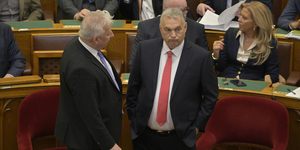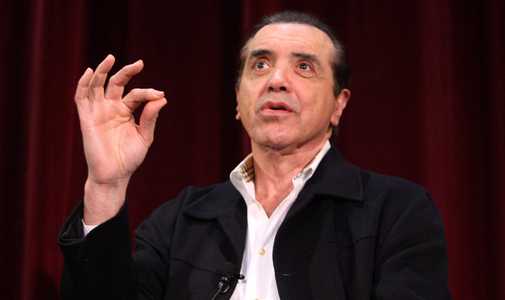Peter Hack's route out of the chaos
The last two presidents had good reason for doing what many are now demanding of Laszlo Solyom. They agreed with the leaders of the various parliamentary parties on candidates for nomination to state offices. The approach Laszlo Solyom is taking to nominations is fine in legal terms, but in practice it doesn't work. But there is a way of dealing with this chaos.
It is easy to come up with arguments in favour of the president's approach: candidates for state positions are more likely to be chosen on the basis of their competence and not according to party allegiance. Furthermore, the pesident can legitimately claim that his candidates are real experts. His approach is legal and quite logical. Unfortunately, it doesn't work.
Peter Hack © Fazekas István |
Members of parliament can react in various ways to the president's approach to nominations. They can choose to ignore questions of form, only discussing the candidate's achievements, finding relevant arguments to justify their support or rejection of a candidate. This is not the most common approach. MPs tend to arrive at committee hearings wholly unprepared and they vote without learning anything or discussing any relevant questions. Instead of justifying their votes, they throw up a fog of confusion, using the secret ballot as a way of avoiding responsibility.
But the constitution specifies that there should be a separation of powers, and makes it clear that the president nominates, not the parties. Candidates are then interviewed by a parliamentary committee who then offer an opinion, after which parliament as a whole votes on whether that candidate is approved.
The current president's approach involves the risk that some posts will remain unfilled - the Supreme Court has been without a president for six months now, taking the country into uncharted waters. Beyond this abstract danger, we can state as a fact that this approach undermines the reputation of the president, parliament and the institutions these nominations affect.
It would be possible to find a solution if every player took an honest approach to this situation and recogtnised his or her mistakes. The president, if he does not wish to agree on nominations directly, could allow his staff to carry out informal discussions. MPs could take their duty to hear candidates seriously.
But we need another solution if everybody carries on behaving in the same way. I don't think problems of legal practice can be solved by changing the law, but sometimes this is the least bad solution. And that's where we are now.
My proposal relates to those offices where a two thirds qualifided majority in parliament is required to appoint a new official. I would not support this approach in the case of the Supreme Prosecutor.
A constitutional rule could be devised that would reflect the intentions behind the existing system while avoiding the chaos. An amendment could allow the president to nominate three people for each position (reflecting the practice at the European Court of Human Rights). Any candidate who gained two thirds majority support in a first round of parliamentary voting would be appointed. If nobody got two thirds support, then in the next round any candidate with more than half the votes would be appointed. If there was still no appointment, then the candidate with the most votes would win in a third round.
This approach would preserve the president's sovereign right to nominate, meaning only candidates whom the president regarded as suited to the job would have a chance of being appointed. It would also preserve parliament's sovereign decision, since only someone with more votes than anybody else could be appointed. The committee hearings would remain important, since it would allow the public to learn something about the candidates and their views, but the committee would not vote on the individuals. Losing this vote would not matter, since the current system does not prescribe any consequences for a committee vote.
This approach would make sure that state positions would not go unfilled for months on end. One of the nominees would be sure to be chosen. It would not affect the prestige of the various institutions involved, and nor would the prestige of the candidates be affected if they were chosen by a transparent process of public competition.
Péter Hack, lawyer
















